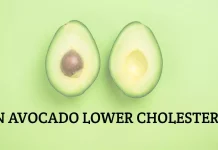
Your kitchen might be the solution to promoting heart health and managing cholesterol levels. Eggplant, also known as aubergine or brinjal in some parts of the world, is a versatile and delicious vegetable that offers a range of health benefits, particularly for your heart.
Understanding Cholesterol and Heart Health
Before we dive into how eggplant can benefit your heart, let’s start with the basics. Cholesterol is a fatty substance present in your blood. While your body requires cholesterol for various functions, excessive LDL (low-density lipoprotein) cholesterol, commonly known as “bad” cholesterol, can result in arterial plaque buildup. This plaque narrows the arteries, elevating the risk of heart disease and stroke.
On the other hand, HDL (high-density lipoprotein) cholesterol, often called “good” cholesterol, helps remove excess LDL cholesterol from your bloodstream, reducing the risk of these heart-related issues.
Eggplant and Heart Health
Now, let’s explore how eggplant plays a role in supporting your heart health and managing cholesterol:
- Rich in Fiber: Eggplant is a fantastic source of dietary fiber. Fiber plays a vital role in reducing LDL cholesterol levels by binding to it and aiding in its removal from the body. Incorporating fiber-rich foods like eggplant can contribute to healthier cholesterol levels.
- Antioxidant Power: Eggplants contain antioxidants, including vitamins C and A. These antioxidants combat free radicals and oxidative stress in your arteries, reducing the risk of cholesterol oxidation, which can lead to artery damage.
- Low in Calories and Saturated Fat: Maintaining a healthy weight and reducing saturated fat intake is essential for heart health. Eggplant is low in calories and saturated fat, making it a smart choice for those looking to manage their weight and cholesterol levels.
- Versatile Cooking Ingredient: Eggplant’s versatility allows you to include it in various heart-healthy recipes. You can enjoy its benefits in many ways, whether roasting, grilling, or using it in dishes like Eggplant Parmesan.
Practical Tips to Include Eggplant in Your Diet
Incorporating eggplant into your meals is easier than you might think. Here are some practical tips:
- Roasted Eggplant: Slice eggplant into rounds, brush with olive oil, season with your favorite herbs and spices, and roast until tender. It’s a delightful side dish or addition to salads.
- Eggplant Lasagna: Swap out traditional lasagna noodles for thinly sliced, grilled eggplant layers in your favorite lasagna recipe.
- Baba Ganoush: Make a creamy and flavorful dip by blending roasted eggplant with tahini, lemon juice, garlic, and olive oil. It’s a perfect accompaniment for whole-grain crackers or raw veggies.
- Stuffed Eggplant: Hollow out eggplant halves and fill them with a mixture of vegetables, lean protein, and herbs, then bake until golden brown.
Final Thoughts
Eggplant isn’t just a tasty addition to your culinary repertoire; it’s a heart-healthy ally. Eggplant supports your efforts to maintain a healthy heart and manage cholesterol levels. So, why not savor this versatile vegetable and show some love to your heart?
A balanced diet that includes a variety of heart-healthy foods, along with regular exercise and other healthy lifestyle choices, plays a significant role in maintaining your heart’s well-being.
Frequently Asked Questions (FAQs)
Is eggplant effective in lowering cholesterol levels?
Eggplant is a valuable addition to a heart-healthy diet due to its fiber content, which can assist in cholesterol level management. However, it should be part of an overall balanced diet.
How does fiber in eggplant help lower cholesterol?
The fiber in eggplant binds to LDL cholesterol and aids in its removal from the body, contributing to lower cholesterol levels.
Can I replace cholesterol-laden foods with eggplant to improve heart health?
Replacing foods high in saturated fats with eggplant can be a healthier choice. However, a comprehensive approach to heart health includes various dietary and lifestyle factors.
Are there specific varieties of eggplant that are more beneficial for heart health?
While different eggplant varieties have similar health benefits, choosing organic or locally grown options can provide additional nutritional advantages.
Can people with dietary restrictions, such as vegetarians or vegans, benefit from including eggplant?
Yes, eggplant is a versatile and nutritious addition to vegetarian and vegan diets, offering fiber, antioxidants, and a range of culinary possibilities.
Are there any side effects or allergic reactions associated with consuming eggplant?
Eggplant is generally safe for most individuals. However, some people may be sensitive or allergic to nightshade vegetables, which include eggplants.
If I lack experience in cooking eggplant, how can I include it in my diet?
You can start with simple recipes like roasted eggplant slices or explore dishes like Eggplant Parmesan. Experimenting with different cooking methods can be fun and delicious.
Is it necessary to peel eggplant before cooking it?
The skin of the eggplant is edible and contains valuable nutrients and fiber. You can leave the skin on when cooking unless a specific recipe suggests otherwise.
Can eggplant be part of a weight loss diet plan?
Yes, eggplant is low in calories and can find a place in a weight loss-friendly diet when you prepare it healthily and pair it with other nutrient-rich foods.
How often should I include eggplant in my meals to support heart health?
Regularly including eggplant in your diet a few times a week can contribute to heart health. However, it’s essential to maintain an overall balanced and heart-healthy diet.









